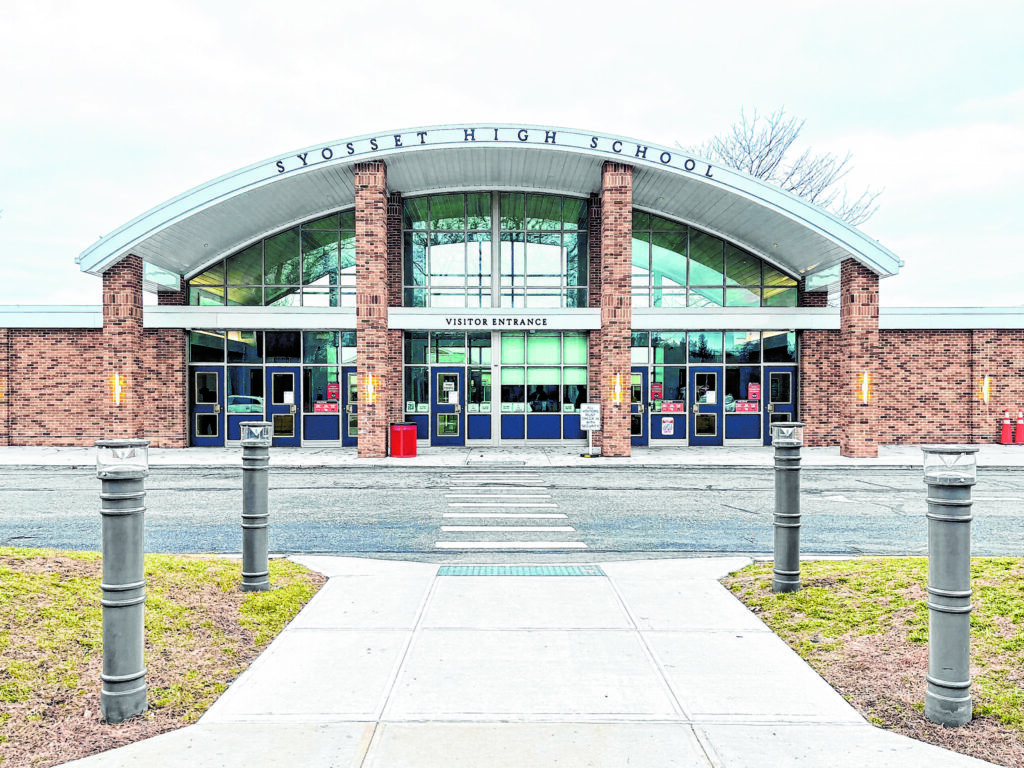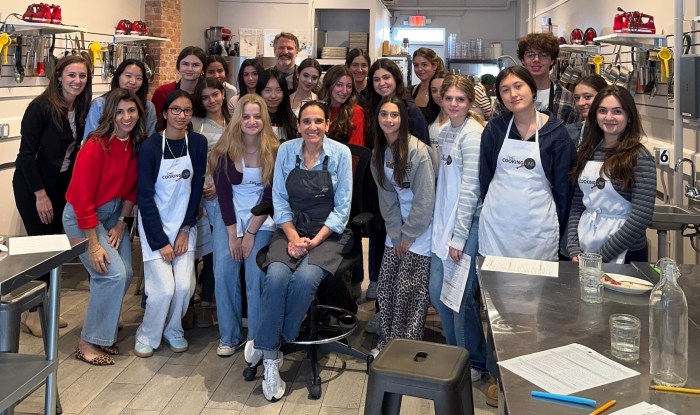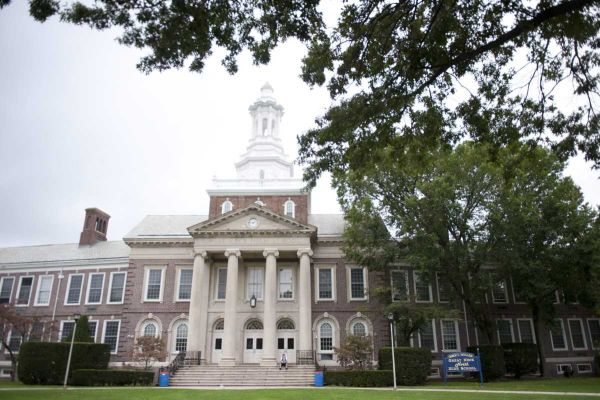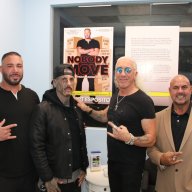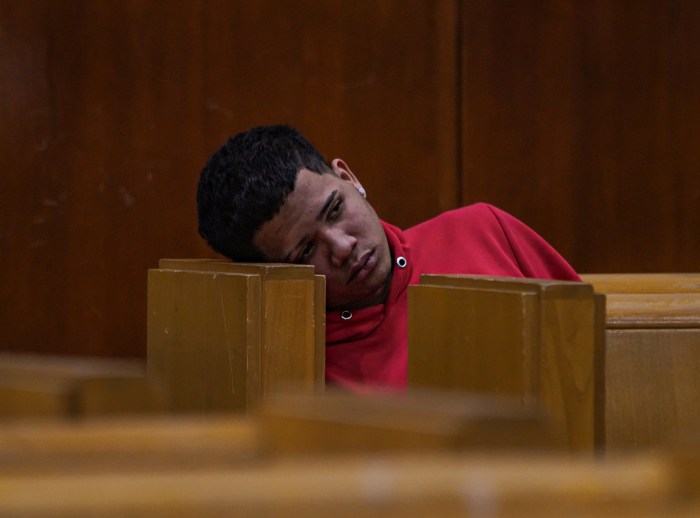New program will increase student’s career readiness
At the Syosset Central School District Board of Education meeting on Jan. 8, there was an increased security presence.
In the past months since the Oct. 7 attack in Israel by Hamas and the ensuing onslaught of retaliation by Israel in Gaza, parents and community members have been expressing concerns at Board of Education meetings about a rise in bias at Syosset’s schools.
During the Dec. 4 meeting, the Board of Education had to take a five-minute recess because outrage ensued among the attendees.
However, no meeting attendees were able to voice their concerns during the Jan. 8 meeting because, at the beginning of the meeting, the Board of Education passed a resolution that temporarily suspended the audience to the public, which gave meeting attendees a chance to address the Board of Education. It will resume at the Feb. 12 Board of Education meeting.
“If the audience would like to stay to observe the public portion of the Board of Education meeting, you are more than welcome to stay, otherwise, this will be a time for you to make a graceful exit,” said Board of Education President Carol C. Cheng.
Presentation Announces SYO+
Syosset High School Assistant Principal David Steinberg led a presentation about a new program called SYO+ that will be offered to students this fall.
“SYO+ is grounded in the New York State CTE (Career and Technical Education) Framework,” Steinberg said. “It’s not a new framework, but you’re going to see how we make it a more robust and Syosset-like program.”
The SYO+ program will offer every student the chance to engage in cross-cutting academic pathways, explore their career interests, develop their heuristic skills (such as creativity, cultural competence, empathy, innovation, ingenuity, persistence and originality), control their education and shape their future.
“If we can allow students to see their future, they’ll be more engaged in the present,” Steinberg said. “They’ll have more purpose in what they’re doing.”
Through the state’s CTE framework, teachers are certified in programs such as family and consumer sciences and technology education.
“What we’re not creating here is a BOCES program,” Steinberg said. “We’re not creating a Barry Tech program. What we’re able to do in this program is take our CTE-certified teachers in these areas and create pathways that meet our student’s interests and needs.”
To develop the SYO+ pathways, the district analyzes nationally identified career clusters used by the state to guide its CTE program. Business, management and administration and STEM (science, technology, engineering and mathematics) are the fields that SYO+ will focus on for now.
SYO+ will require students to complete 3 to 5 credits in CTE-approved courses and a three-part technical assessment: an industry-standard written exam, an industry-standard demonstration and a locally developed project or performance-based project.
Upon completion, the student will receive a New York State Career & Technical Endorsement, which will appear as a seal on their diploma once they graduate from high school.
“In addition to that, they’re going to accrue a number of micro-credentials,” Steinberg said.
Micro-credentials are skills attained that are needed for recruitment, screening, hiring, retention and advancement.
The approved 2024-2025 Pathways are Accounting & Finance, Business Management and Pre-Engineering.
Matthew Fiasconaro, the district’s work-based learning coordinator and a high school business teacher, explained each of the pathways.
The Accounting & Finance Pathway will require a .5 credit in personal finance, a .5 credit in business communications or investment decision-making, 1 credit in Accounting 1 or College Accounting, 1 credit in College Corporate Finance and 1 credit in College Virtual Enterprise. Students will also receive a MS Excel Certification as their micro-credential.
For the Business Management Pathway, students will take a .5 credit in personal finance, 1 credit in college marketing & management, 1 credit in Accounting 1 or College Accounting, 1 credit in College Virtual Enterprise and a choice of hospitality and tourism, sports marketing, fashion marketing or entrepreneurship. Students will receive an Intuit Design Thinking Certification as their micro-credential.
For the Pre-Engineering Pathway, students will take .5 credit in personal finance, 1 credit in design & drawing for production, 1 credit in college engineering and 1 credit in college nanotechnology. Students will receive a Google Skills Certification and a VectorWorks Core Associate Certification as their micro-credentials.
The district’s IT program developed an app that allows guidance counselors, when meeting with students, to see what classes they’ve already taken and what classes they should take next in the three available pathways.
Just for the class of 2025, 169 students are enrolled in Pre-Engineering, 94 students are enrolled in Business Management and 40 students are enrolled in Accounting & Finance.
Board of Education Trustee Susan Falkove said that while she believes this program can be a great opportunity for students, she always thinks about the extra pressure on the students.
“I always worry that it’s going to be one more thing that they have to do, one more box that they have to check off,” Falkove said. “I know a lot of the kids’ time is already limited on what they have room in their schedule for. Is there any plan to expand the flexibility in the classes they can take so that they can have more opportunities to get the pathways?”
Steinberg explained that in the Business Management Pathway, for example, students have a choice of taking a half credit in subjects such as hospitality or entrepreneurship.
“We want as much choice here,” Steinberg said. “We don’t want to limit, we want to expand choice. We don’t want to give them another box to check off. We want them to feel good about this.”
New Graduation Requirements from NYSED
In November of 2023, the New York State Education Department presented recommendations from a Blue Ribbon Commission on Graduation Requirements that initially began meeting in the fall of 2019.
In the report released in November, the commission highlighted four priority areas for change in the graduation requirements.
“While these recommendations are significant in many ways, Syosset’s already very far along on the path towards meeting these requirements,” said Dr. Raymond Loverso, the assistant superintendent for curriculum, instruction and assessment, during a presentation to the Board of Education.
The four priority areas are consideration of multiple pathways leading to one diploma; review of assessment flexibility; understanding of meaningful life-ready credentials and culturally responsive curriculum, instruction and assessment.
The commission also drafted a recommendation for a portrait of a graduate, which includes being a critical thinker, innovative problem solver, global citizen, literate across the content areas, culturally competent, effective communicator and socially and emotionally competent.
The commission recommended diploma credit requirements including civic responsibility/ethics, cultural competence, financial literacy education, fine and performing arts, STEM credits and writing, including writing skills for real-world scenarios.
“In many cases, our existing coursework addresses these requirements,” Dr. Loverso said. “But we’re always looking for ways to enhance our curriculum and our course offerings and this is another great opportunity to engage in upgrading and adding curriculum in different areas.”
Additionally, the commission recommended consolidating the three available diplomas: the Regents Diploma with Advanced Designation, the Regents Diploma and the Local Diploma, into one diploma with an emphasis on different pathways such as STEM, Humanities and Art. All students must pass four required assessments in English, Math, Science and Social Studies.
To view the entire Jan. 8 Board of Education meeting, visit www.syossetschools.org/domain/120.



